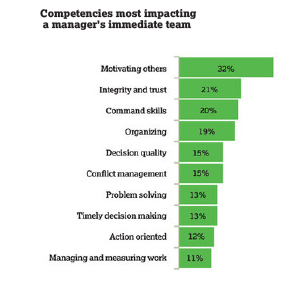by Charles Plant | Jul 18, 2012 | Management, Research
 Did you know that we’re working more but getting less done? The average work week has increased from 35 hours in 1970 to 46 hours in 2012 and three out of four Americans feel stressed at work and one out of four say that work is the most stressful part of their lives. We’re working longer hours but are we more productive?
Did you know that we’re working more but getting less done? The average work week has increased from 35 hours in 1970 to 46 hours in 2012 and three out of four Americans feel stressed at work and one out of four say that work is the most stressful part of their lives. We’re working longer hours but are we more productive?
What is the effect of these changes? Check out this post with a great infographic that Keri Damen sent me.
I’m not sure where this idea that you’re more productive working longer hours comes from. I suspect it comes from the world of lawyers, accountants, and engineers who bill their time by the hour. In their case, working longer hours results in getting paid more. For the rest of us, that isn’t the case.
If you’re a manager, your job is to get things done through other people.
If you’re doing a good job delegating responsibility and authority, there is no reason to work long hours. In fact if you are working too long you probably aren’t doing your job properly.
Working long hours means that either you are doing things yourself which is a no-no as a manager or you haven’t delegated enough authority to the people working for you. In either case, you’re not being an effective leader.
Don’t forget. Your job as a leader is to set the vision, communicate and motivate. Your job doesn’t actually entail doing any work yourself. So why are you working such long hours?
by Charles Plant | May 29, 2012 | Management, Research
Back to the Futurestep survey I mentioned last week. This survey looked at something it calls consequential impact which is essentially your ability to get things done through others. Whether you manage people, projects, products or process, you’ll need to get things done through other people. The question the survey attempted to answer was what skills are necessary for you to have consequential impact on your own direct reports. No surprise here but your ability to motivate others and integrity and trust were the most important characteristics. As you move away from being an individual contributor to being a manager of people, such things as problem solving become less important than motivating your direct reports to solve the problems themselves.

by Charles Plant | May 25, 2012 | Research
 Research out of Columbia University summarized here suggests that men’s dominance of the ‘C’ Suite may not in fact be due to discrimination but to over confidence.
Research out of Columbia University summarized here suggests that men’s dominance of the ‘C’ Suite may not in fact be due to discrimination but to over confidence.
In an amusing set of studies, the researchers set out to determine whether men have an easier time ‘faking it’ due to natural overconfidence. The research shows that while both men and women exaggerate capabilities (aka, lie), men happen to over-report their results more than women. Not only do men exaggerate more than women, they tend to lie more the larger financial reward.
Thus you can see a board of directors faced with two candidates for the role of CEO, one a man, the other a woman, They both might have equal capabilities, but the man’s over-confidence and exaggeration of results compared to the woman is going to get him the job.
 Did you know that we’re working more but getting less done? The average work week has increased from 35 hours in 1970 to 46 hours in 2012 and three out of four Americans feel stressed at work and one out of four say that work is the most stressful part of their lives. We’re working longer hours but are we more productive?
Did you know that we’re working more but getting less done? The average work week has increased from 35 hours in 1970 to 46 hours in 2012 and three out of four Americans feel stressed at work and one out of four say that work is the most stressful part of their lives. We’re working longer hours but are we more productive?

